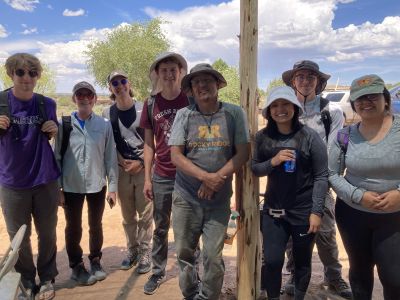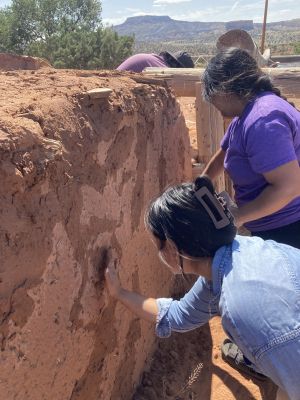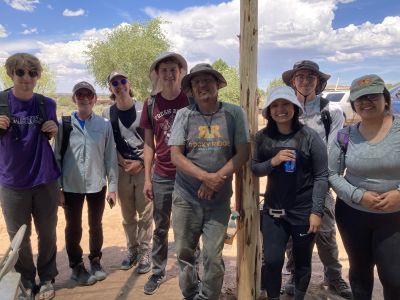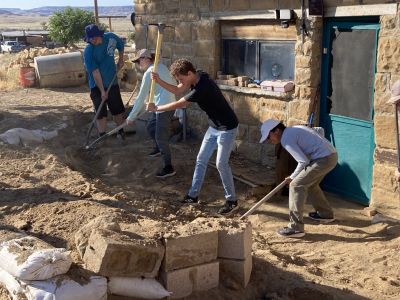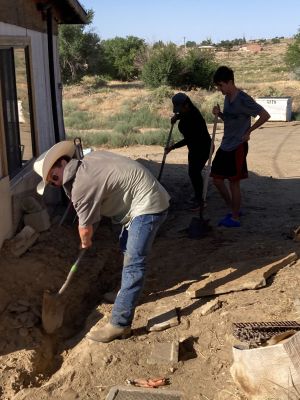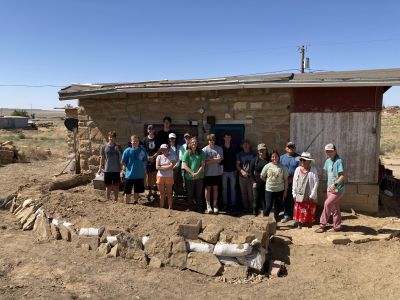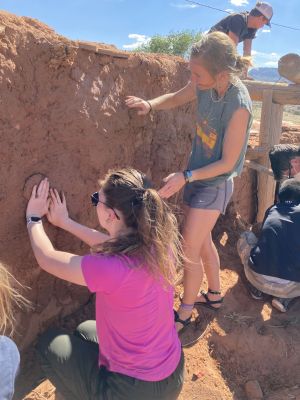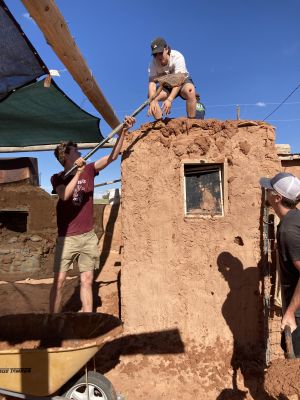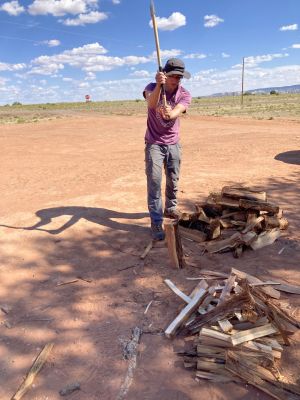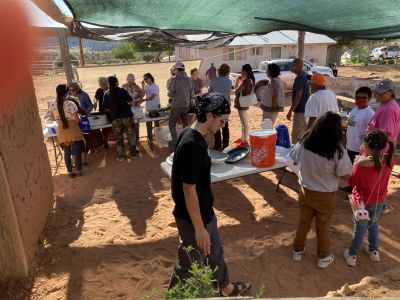
Benjamin Barney hosted Craig (pictured) and Lukas at his home for several days — in addition to some manual labor, the students offered their service of presence to their host
Craig Elias reflects on several of the service projects, or “community-engaged learning” activities, that our indigenous hosts invited us to participate in during the final weeks of our Navajo Hopi Study Service Term (SST):
Today we talked as a group about the term service in SST, and the tension was high. Each person was set on their own ideals, wanting only for the rest of the group to agree to their plan of action. There were two sides. One was ridiculed for being a “white savior.” The other was slammed for being selfish and unwilling to work. This was a difficult conversation to have. Everybody in the room had good intentions; however, I believe we needed to discuss what the goal of service was first.
We have participated in two different types of service for this class and learned from all of the experiences. We helped people with their property and volunteered for a much larger organization.
Working on individual home sites was a struggle as a task-oriented person. Each time the homeowner would describe the job it would hurt my soul. Either I was only working towards a temporary solution, or I was instructed to operate in an inefficient manner.
In one scenario we were tasked with repairing an adobe storage space next to Black Mountain Mennonite Church. There were not nearly enough tools to go around. We were especially limited by only having one tiny bucket to transport the wet sand-clay mixture onto the roof. I was mixing in the water with a shovel when a small child grabbed the handle in order to show us all how. I let him have it and watched patiently. After another minute I walked into the kitchen and worked on my part of dinner because I could not handle any more standing around. After this first group service project I reflected on how people would work on a different time frame. The Navajos were socializing and not nearly as worried about maximizing productivity while working.
The second type of service was for RezDuro, a mountain biking organization that requested volunteers for their upcoming race (RezDuro). This was objectively a more professional and well-organized crew of workers. It was a treat to work with Joey Klein and professional trail builders (International Mountain Biking Association)
Watching kids bomb the hill testing out the technical course broke up the task of working in the 90 degree heat. Everyone was extra appreciative of our class for carrying rocks and scraping the trail. We were well taken care of as volunteers by the trail crews. They brought us cold water and instructed us to take enough breaks. After it was all over though people had an ethical dilemma for not having any relationship with the indigenous group prior to helping, and for only being there one day.
The last service project is what brought the group’s difference in opinion to a head. While visiting the Peace Academic Center, formerly the Hopi Mission School (Peace Academic Center) we were asked by our host Lance Polingyouma to help an elderly Hopi woman who he regarded as his mother.
Flo’s house was in danger of being flooded. We created a berm outside of the front door and dug out some drainage that would likely be insufficient long term. It was frustrating because it was clearly a temporary solution. It was difficult to work hard at a task that we did not entirely believe in. There was a clear mentality in the group that was against manual labor and our work ethic only lasted the first half hour.
I distinctly remember chipping away at the dirt, looking up and seeing a group of students that was finished working and laughing at me in a friendly manner for caring so much. I was completely influenced by the peer pressure and stopped working.
At the same I am conflicted because both sides had valid points. On the one hand, we had pulled up to her house on a Goshen College van that could have been confused with a religiously-affiliated bus. We did labor in a trade that we have no skills in, not speaking with Flo until near the end of the project. On the other hand, Lance explained that Flo’s home was in danger of flooding and needed immediate help in order to keep it dry when the summer monsoon rains arrived.
At this point service is so controversial I feel damned if I do and damned if I don’t. This is unfortunate because it blocks all the necessary changes that need to be done.
We need to leave out the self righteousness and understand that anybody doing service has the correct morals for doing so.
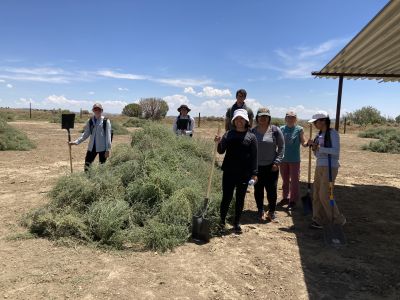
Inside the arena that Marvin asked our group to clear for a staging area for the mountain bike race next month
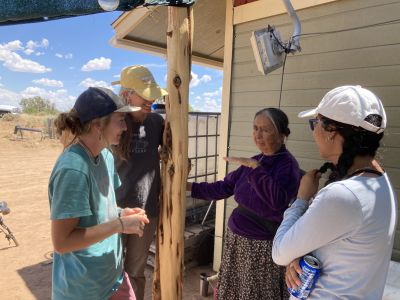
Chatting with Edith after working with her extended family at RezDuro. Teresa and Areli spent several days getting to know the family during a host family stay the previous week
